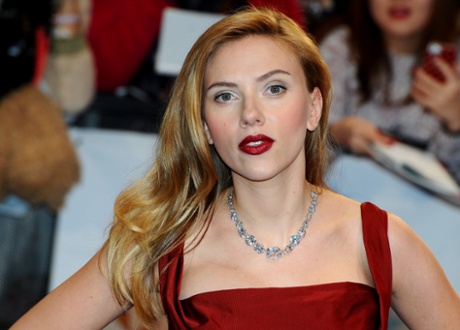
A few years ago, while enjoying the indulgence of the weekend newspaper, I was troubled to discover that Marieke Hardy had, among other fine qualities, “nice tits”. This was according to a piece in the Sydney Morning Herald’s supplement Good Weekend (not online), written by John van Tiggelen, who even verified the fact with Hardy’s housemate.
Now I’m no prude, and Hardy is a self-described “hedonist, raconteur and bon vivant”, but the piece, which also made repeated references to Hardy’s seductive consumption of a green-iced vegan cupcake, left me with an intensely uncomfortable feeling. There was just something that permeated the writing like the unwelcome attention of a relative who’d had one too many. At the time I tweeted my pithy disdain, considered it a satisfactory feminist protest on my part, and left it at that.
Fast forward to Wednesday when I’m browsing the New Yorker (online and during a lunch break, because time for newspaper weekend indulgences are long gone). This time I’m reading a profile of Scarlett Johansson by Anthony Lane where she appears as if “made from champagne”, her laugh “dry and dirty, as if this were a drama class and her task was [sic] to play a Martini” and her backside, “barely veiled in peach-colored underwear”. As Slate points out this is not the first time Johansson has inspired “culture writers to do horrible things with words”, but that’s not the greatest crime here.
We’re all familiar with the concept of the “male gaze”, particularly when it comes to Hollywood film – the lens lingering on the curves of leading ladies’ derrieres (Lane talks of Johansson’s “contours” of reputation) – a scopophilic guilty pleasure. And, let’s face it, women’s bodies are delightful things to look at, one of the reasons media executives conveniently argue that the economics of the industry make it impossible to avoid stereotypes of women.
But when respected male writers profile powerful women, is it wrong that we should expect more than lengthy, voyeuristic wet dreams? In the cases of both Hardy and Johansson, the writers of their profiles are accomplished and well-regarded. Their audiences, a “new intelligentsia”, are likely to congratulate themselves on their progressive values. Their subjects are powerful and sexually subversive women. Yet in both cases the women are reduced to something resembling not much more than titillating, slightly fearsome, but ultimately decorative objects.
What is at play here is a struggle between high profile media men and the threat they feel from their female counterparts. I’m not suggesting that van Tiggelen and Lane, and other male writers of their ilk, are deliberately trying to subvert female power, but their approach to their famous female subjects does exactly that. They are both threatened and enthralled by their “unknowable” female subjects, on which they publically (and awkwardly) project their male desires. There’s not much of an attempt to comprehend them beyond their sex appeal. Quite simply, men writing about women can all too often make men seem stupid, and it’s not OK – for either sex.
Despite the gradually increasing number of female journalists on a global level, it is largely men who remain in decision-making roles. They also make up the bulk of columnists (in the US the ratio is one woman to four men). Increasing diversity at senior levels of media organisations would help introduce more informed perspectives. Though female writers can be as guilty of cliches (I’m no exception), they at least are less likely to drop in the pervy overtones that pervade so much male writing about strong and successful women. Commissioning women to write profiles of leading women would solve two problems at once. Readers too should expect better and express our disdain when we don’t get it. Male writers, for their part, need to understand the broader implications of lazy, laddish prose.
You can’t have equality without respect. It pains me that in 2014 I need to point out – to the New Yorker, of all places – that successful women are more than a pair of “nice tits” or “peach-colored underwear” . Seriously gentlemen, enough.

